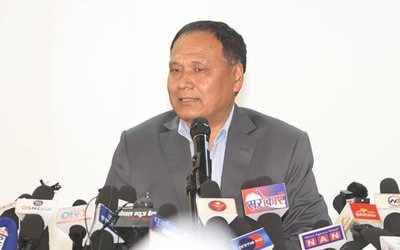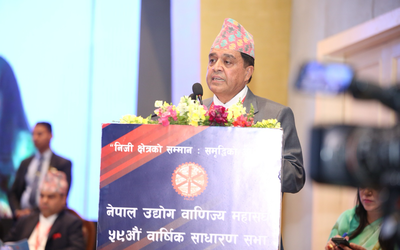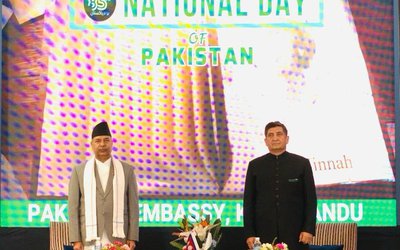
The recently released Human Development Report-2013 has pointed out that Nepal's Human Development Index (HDI), in the 157th position, second to war-torn Afghanistan in South Asia, with Nepal's HDI value at 0.463, which is far below the South Asian average of 0.558, is grim.
According to Human Development Report 2013, Nepal's HDI indicators are still poor compared to South Asian average in every front. Nepal's mean years of schooling is 3.2 compared to 4.7 for South Asia and expected years of schooling is 8.9, compared to 10.2 South Asian average. South Asia's average GNI per capita (PPP) is 33,343 and Nepal's is 1,137 which is far below the low HDI of 1,633.
Whether anyone likes or does not like the argument, Nepal requires some sort of stability in the policy to make the difference in changing its overall development scenario. However, the recent activities of the Ministry of Finance have indicated that the politically-rocked Nepal's development agenda will be badly shaken in the coming days.
"As Nepal's political instability has already shaken economic growth and political stability will be less likely in the coming years, any drastic change in the current foreign aid policy is likely to further disrupt the overall growth," said financial experts.
Although the government is yet to issue any formal remarks on foreign aid policy on Nepal, the recent write-ups written by the officials working in the International Economic Cooperation and Coordination Division at the Ministry of Finance have indicated that there is something cooking inside the Ministry.
"Still, the overall picture of aid effectiveness is not encouraging. As a result, there is doubt about whether foreign aid is actually needed in Nepal. Before we decide, we need to understand the structure of Nepali economy. The Nepali economy is characterized by structural bottlenecks, large fiscal and external deficits, and significant imbalances between savings and investment. In such a scenario, foreign aid could act as important support if it is vigorously negotiated by prioritizing the interests of the country," writes Hari Prasad Sharma, section officer at the International Economic Cooperation Coordination Division at the Ministry of Finance in his recent article in My Republica.
Sharma's write up draws the conclusion that foreign aid in Nepal failed to make tangible progress. Just a week after the first article, Kailash Raj Pokharel, an Under Secretary at the IECCD, Ministry of Finance, has come up with another article in The Kathmandu Post. "Nepal has been receiving foreign aid for the last sixty years and the many projects and programs implemented through this aid are now showing good results in infrastructure, irrigation, education, health and agriculture. There have been discussions and debate on whether foreign aid in Nepal has achieved its intended objectives. So what kind of change has aid brought to Nepal?" Sharma questions.
"However, a small amount of foreign aid does not have much effect in transforming the country. We need to stimulate the private sector, together with internal government resources while applying effective aid management tools. If we need aid, we also need to be practical and realistic about our capacity. Sentimentality without being backed by strengths does not help in mobilizing investment. Aid does not come with altruism and aid is not unlimited. It cannot be used forever and needs an exit at some point in time," Sharma draws the conclusion.
According to sources inside the Ministry of Finance, the government is planning to bring a new foreign aid policy to limit the role of Nepal's development partners, particularly the western donors, in their investment in social sectors. According to the sources in the Ministry, donors have been bypassing Ministry in disbursement on aid. Out of 454 foreign aided projects, 114 projects get the assistance through government red book and 340 from outside.
According to recently released Finance Ministry's report on foreign aid, there are many drawbacks of foreign aid in Nepal. The report stresses the need to maintain the restraint on the flow of aid. "We want to see transparency in foreign aid mobilization," said finance minister Shanker Koirala.
The statements and reports coming from the Ministry of Finance is likely to raise the antenna of Nepal's development partners. At a time when the country's overall internal resources mobilization is just enough to feed its own employees and Nepal's private sector players are yet to have the capital to finance, any shortcoming on foreign aid is likely to derail the progress.
- NEPAL-THAILAND: Joint Business Council
- Apr 13, 2025
- BIMSTEC SUMMIT: Nepal’s Stand
- Apr 11, 2025
- IME GROUP: Expands Into Paper Industry
- Mar 24, 2025
- CPN UML: Instigated By India
- Mar 23, 2025
- ADB’S CHIEF ECONOMIST: Nepal Reduces Poverty
- Mar 11, 2025















